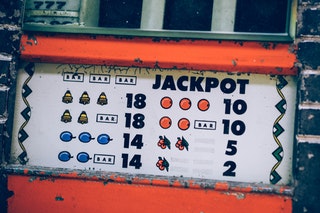
In the behavioral approach, we are very interested in the consequences of behaviors, because they determine future behaviors. In particular, we look at the frequency in which these consequences occur.
Does a significant consequence appear every time I carry out a particular behavior, or only from time to time? For example, every time that I go to a bakery, ask for a baguette and give them a dollar, they give me a baguette in exchange. In behavioral terminology, we would then say that my behavior is governed by a fixed ratio schedule of reinforcement. This schedule signifies that the appearance of the reinforcer (the bread in this example) is determined by the number of behaviors (only one in this example) and that this number is always the same (in the example, I asked for bread one time and was reinforced at each occurrence). Another example could be a loyalty card from a pizza shop. I would have to buy 10 pizzas in order to obtain a free pizza. It is then the number of purchases that determine the arrival of a reinforcer (the free pizza), and this number is fixed (10 in this example). If it so happened that the pizza restaurant refused to give me my free pizza even though I purchased 10, or that the bakery refused to give me my baguette after I gave them a dollar, you can bet that I would no longer be a client of their establishment.
Some consequences don’t occur on a fixed schedule, but a variable one. The slot machines at a casino are the archetype of a variable ratio schedule. Winning depends directly on the behavior of the player (the more you play, the higher your chances of winning), but the number of times that it is necessary to play in order to win is variable. If we knew that a slot machine in the casino allow for a win at each hundredth plays for example, the game would be truly bizarre. Notably, what kind of idiot would sit and accept to play the other 99 times?
Contrary to potentially being denied my 11th free pizza in a pizza shop, when faced with a slot machine, we continue to play even after having lost. Effectively, even if I were to lose 11 times in a row, nothing would give me the confidence to know that the 101st time wouldn’t be the winning play. Clearly, as variable schedules of reinforcement are unpredictable, giving up is much more difficult, because we tell ourselves that we will win on the next try.
Experiential avoidance works like a slot machine. It is governed by a variable ratio schedule of reinforcement. From time to time, attempts to control persistent anxiety, a feeling of inferiority or guilt that has always accompanied us, manages to ease the suffering. Each time, the relief is a bit like a gain in the slot machine: we come to believe that we have found the martingale, the way to win every time, the solution to our suffering. So if the next time our “method” of relief doesn’t work as well, we don’t give up. On the contrary, we insist, as a player would do in front of her machine. It succeeded once by a dint of perseverance, it will eventually work again!
It is because experiential avoidance works only sometimes that we are hooked on it and it is so difficult to not try this behavior again in the future. However, just like with gaming, we can become addicted to experiential avoidance. We could even say that we are all, at first, addicts to the avoidance of our psychologically painful experiences. The difficulties arise for those who are particularly ready to sacrifice everything so as not to feel these difficult emotions, as a player would spend all her money in slot machines, certain that she will win.
Translated by Chelsea Davis-Laurin
[Would this article interest someone in your network? Share!]